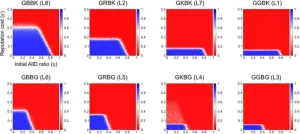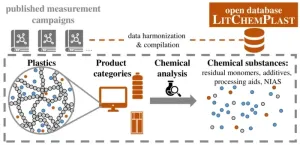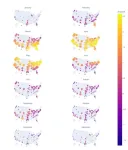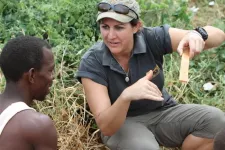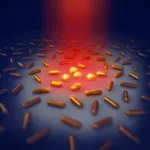(Press-News.org) Leading ethics experts and researchers have co-authored a breakthrough paper calling for new governance and legal rules to guide application of emerging technology to preserve organs for transplant.
Current law and guidance are inadequate for emerging biopreservation technologies that will allow long-term storage of human organs for transplantation. The technology is much needed to address the severe time constraints that currently limit the viability of donor organs. Those constraints have contributed to a severe organ shortage, which affects patients throughout the U.S. but differentially impacts patients in more remote areas and from traditionally underserved population groups. The ability to biopreserve and store organs will radically change organ transplant systems and require new oversight of these engineered organs.
This new article in the American Journal of Transplantation, “Governing new technologies that stop biological time: Preparing for prolonged biopreservation of human organs in transplantation,” advocates for new oversight from the U.S. Food and Drug Administration, new facilities for transport and storage, and ethics guidance on which organs to store versus transplant immediately. Lead authors of the publication are University of Minnesota professors Timothy Pruett, MD (Department of Surgery), and Susan M. Wolf, JD (Law School, Medical School, and Consortium on Law and Values in Health, Environment & the LIfe Sciences).
“As the country discusses how it will modernize its transplant system,” Dr. Pruett said, “it is critical that the change anticipates the future and not just respond to past deficiencies.”
Work leading to the publication was supported by a five-year $26M NSF award (#1941543) to the University of Minnesota. The award established an “NSF Engineering Research Center for Advanced Technologies for Preservation of Biological Systems (ATP-Bio)” directed by professor John Bischof, PhD (College of Science and Engineering). Since 2020, research undertaken by the Center has led to discoveries that can extend the viability of organs in animal models from hours to weeks.
END
Emerging technology for extended preservation of organs for transplant requires new ethical & legal guidelines
2024-10-29
ELSE PRESS RELEASES FROM THIS DATE:
Transcriptomics-based study on the mechanism of heart failure amelioration by water decoction and water-soluble alkaloids of Fuzi
2024-10-29
Background and objectives
Fuzi, the processed product of daughter roots of Aconitum carmichaelii Debx., is a well-known Chinese medicine for the treatment of heart failure (HF) and related cardiac diseases. This study aimed to investigate the molecular mechanism of the cardioprotective effects of Fuzi water decoction (FWD) and Fuzi water-soluble alkaloids (FWA) on the model of HF.
Methods
The HF model of rats was prepared through intravenous injection of propafenone hydrochloride. The normal group, model group, FWD-treated groups (1.25 g/kg, 2.5 g/kg, 5 g/kg) and positive group (Shenfu Injection, 3.3 mL/kg) were set up. Heart rate, LV+dp/dtmax, and ...
A novel probe technology for detecting native albumin activity as a biomarker in patients with hepatitis B-related cirrhosis and hepatocellular carcinoma and its clinical applications
2024-10-29
Background and objectives
Albumin is a major prognostic factor for patients with advanced liver disease, dependent on its concentration and biological activity. This study aimed to improve the method of active albumin detection and elucidate its predictive validity of albumin activity across hepatic disease progression and etiology.
Methods
This study synthesized a novel ratiometric fluorescent probe with an improved structure of 2′-FBPBN. The technique was used to detect native human albumin (HA) activity in 244 patients with hepatitis B cirrhosis (LC) and 66 patients with hepatocellular carcinoma (HCC). Clinical and laboratory data were also collected.
Results
Patients ...
A simulation study identifies robust social norms that sustain cooperation in costly reputations
2024-10-29
A groundbreaking study led by Prof. Dr. Hitoshi Yamamoto (Rissho University) and his collaborators from, Soka University, Koriyama Women’s College, and the RINRI Institute has made significant strides in the field of indirect reciprocity: a key mechanism for sustaining cooperation in human societies. Their research unveils new insights into the social norms that protect cooperative behaviour from defector invasion and reputation costs, thereby deepening our understanding of how large-scale societies maintain stability. The results of the study were published in Scientific Reports.
Indirect reciprocity is characterised by cooperative ...
Newly discovered cyanobacteria could help sequester carbon from oceans and factories
2024-10-29
An international coalition of researchers from the United States and Italy has discovered a novel strain of cyanobacteria, or algae, isolated from volcanic ocean vents that is especially adept at growing rapidly in the presence of CO2 and readily sinks in water, making it a prime candidate for biologically-based carbon sequestration projects and bioproduction of valuable commodities. This strain, nicknamed “Chonkus,” was found off the coast of the island of Vulcano in Sicily, Italy — an environment in which marine CO2 is abundant due to shallow volcanic vents. The discovery is described in a paper published ...
Making scents of aromas that differentiate beer and wine
2024-10-29
Today, people increasingly seek non-alcoholic versions of beer or wine. Despite boasting different flavors, these two drinks share many aromas, which makes it difficult to produce alcohol-free versions that mimic the real thing. Researchers in ACS’ Journal of Agricultural and Food Chemistry report on a literature analysis and experiment to characterize the chemical compounds that give beer and wine their unique fragrances. They say their findings could aid the development of flavorful, non-alcoholic substitutes.
Food and beverage researchers are working to recreate the enjoyable aromas and flavors of beer and wine in alcohol-free substitutes. However, because both beer and ...
FAU awarded DOE grant to test ocean current energy offshore Palm Beach County
2024-10-29
Imagine harnessing the power of ocean currents to generate clean, renewable energy right off the coast of Southeast Florida. Florida Atlantic University’s Southeast National Marine Renewable Energy Center (SNMREC) has been awarded an $800,000 grant from the United States Department of Energy’s Water Power Technologies Office to enable the commercial readiness of ocean energy technologies.
SNMREC, in collaboration with a team of experts including The City of Lake Worth Beach Electric Utility, 3U Technologies, 48 North Solutions, IDOM Incorporated, Braid Theory, and the European Marine Energy Centre (EMEC), ...
Open-access database compiles 3,500 substances measured in plastic products: Study highlights substantial knowledge gaps
2024-10-29
About this study: Plastics contain a vast number of chemicals, some of which greatly impact the environment and human health. However, information on the presence of individual substances in plastic products is oftentimes not publicly available. In a peer-reviewed study, set to be published on 29 October 2024, in Environmental Science and Technology Letters, a new publicly accessible database on chemicals measured in plastics is presented - LitChemPlast. The database contains over 3’500 substances measured in over 47'000 samples of plastic products across 372 studies.
Key findings:
• Contamination of recycled plastics:
The database shows that, due to ...
Internet activity reveals national allergy patterns
2024-10-29
Complaining about your allergies online might provide valuable data to researchers. Over 25% of Americans experience seasonal allergies, but how the prevalence of seasonal allergies varies across space and time remains obscure, in part because allergies seldom warrant visits to healthcare providers. Elias Stallard-Olivera and Noah Fierer mined Twitter (now X) posts and Google searches from 2016–2020 to extrapolate spatial and temporal allergy patterns. A natural language processing model sorted posts that indicated symptoms (e.g., “My allergies are really bad today!!”) from posts that include key words but did not indicate the presence of symptoms (e.g., “Gluten ...
New study confirms beehive fences as highly effective in reducing human-elephant conflict, but researchers warn of future risks
2024-10-29
[11:00 GMT - 29 Oct 2024] A groundbreaking, nine-year study has revealed that elephants approaching small-scale farms in Kenya avoid beehive fences housing live honey bees up to 86% of the time during peak crop seasons, helping to reduce human-elephant conflict for local farmers and boost income. Link to images and video of the project available
Key findings include:
Beehive fences are a proven success in reducing human-elephant conflict in Africa.
Savannah elephants avoid beehive fences housing live honey bees up to 86% of the time during peak crop seasons.
Across all seasons and the entire study period, the fences deterred an annual average of 76% of 3,999 ...
Tiny gold radiators fry bacteria on implants
2024-10-29
In the fight against antibiotic resistance, a new technology developed at Chalmers University of Technology, in Sweden, can be of great importance when, for example, hip and knee implants are surgically inserted. By heating up small nanorods of gold with near-infrared light (NIR), the bacteria are killed, and the surface of the implant becomes sterile. The researchers are now presenting a new study that increases the understanding of how the gold rods are affected by light and how the temperature in them can be measured.
Infections can occur during surgical procedures, with the risk increasing significantly when foreign materials, ...

